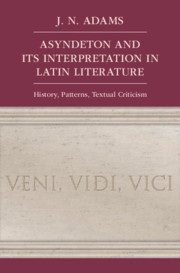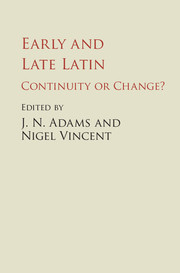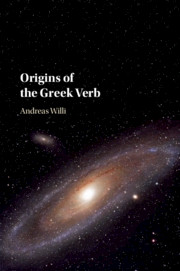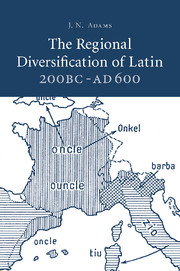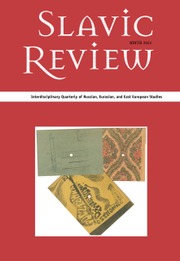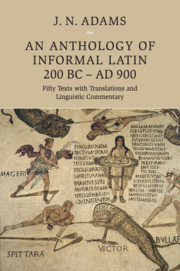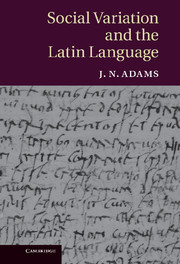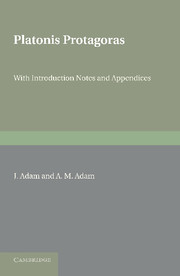Asyndeton and its Interpretation in Latin Literature
History, Patterns, Textual Criticism
$179.00 ( ) USD
- Author: J. N. Adams, All Souls College, Oxford
- Date Published: May 2021
- availability: This ISBN is for an eBook version which is distributed on our behalf by a third party.
- format: Adobe eBook Reader
- isbn: 9781108950251
Find out more about Cambridge eBooks
$
179.00 USD
( )
Adobe eBook Reader
Other available formats:
Hardback
Looking for an examination copy?
If you are interested in the title for your course we can consider offering an examination copy. To register your interest please contact [email protected] providing details of the course you are teaching.
-
Asyndetic coordination (omission of coordinators such as 'but', 'or', 'and') is ancient in Indo-European languages. Most commentaries on Greek and Latin texts index 'asyndeton', but wide-ranging treatments of asyndeton across a variety of literary and non-literary genres are largely lacking, and comments are often impressionistic. This book provides the most comprehensive account of asyndeton in Latin ever attempted, and it also contains material from Greek and Umbrian. It analyses asyndeta in diverse genres from early Latin to the early Empire, including prayers and laws, and aims to identify types, determinants, generic variations and chronological changes. Since coordinators are easily left out or added by scribes, criteria are discussed that might be used by editors in deciding between asyndeton and coordination. External influences on Latin, such as Greek and Italic, are also considered. The book will be essential for all scholars of Latin language and literature as well as historical linguistics.
Read more- Analyses asyndeta in a variety of Latin genres spread over half a millennium, thereby allowing comparisons to be made between different writers and genres over time
- Allows informed judgments to be made about the influence of Greek writers or genres on Roman, e.g. of Homer on Virgil, New Comedy on Plautus
- Offers a typology of Latin asyndetic pairs according to grammatical, semantic and structural features
Customer reviews
Not yet reviewed
Be the first to review
Review was not posted due to profanity
×Product details
- Date Published: May 2021
- format: Adobe eBook Reader
- isbn: 9781108950251
- availability: This ISBN is for an eBook version which is distributed on our behalf by a third party.
Table of Contents
Part I. Introduction:
1. Asyndetic and syndetic coordination: definitions and types
2. 'Asyndeta' that may not be asyndeta: roles of adjectives
appositional compounds
and 'asyndetic hendiadys'
3. Asyndeton versus coordination, an introduction
4. Lists of two types
5. Supposed 'effects' of asyndeton
Part II. 'Grammatical' Types:
6. Asyndetic pairs (mainly of adjectives) of which at least one member is a term with a negative prefix
7. Simple verb + compound in asyndeton
8. Juxtaposition of active and passive forms of the same verb
9. Asyndetic pairs of verbs of different tense or mood
10. Pairs of imperatives
11. Masculine-feminine pairs
12. Recapitulation: 'Grammatical' types and their distribution
Part III. Semantic Types:
13. Pairs of opposites
14. Pairs denoting family members
15. 'Semantic' types: some conclusions
Part IV. Structures:
16. Rule of ascending length (?)
17. Correlative distribution
18. End-of-list coordination and 'weak' asyndeton bimembre
19. Accumulations of asyndeta: a few patterns
20. Discontinuous asyndeton and conjunct hyperbaton
21. Asyndetic pairs dependent on a single preposition
Part V. Genres and Texts:
22. Laws and prayers
23. Plautus
24. Virgil and early high-style poetry
25. Lucilius
26. Cicero
27. Catullus
28. Caesar, Bellum Ciuile: asyndeton and textual criticism
29. Horace
30. The Annalists, Sallust and Tacitus
31. Livy
Part VI. Conclusions:
32. Asyndeton in Latin.
Sorry, this resource is locked
Please register or sign in to request access. If you are having problems accessing these resources please email [email protected]
Register Sign in» Proceed
You are now leaving the Cambridge University Press website. Your eBook purchase and download will be completed by our partner www.ebooks.com. Please see the permission section of the www.ebooks.com catalogue page for details of the print & copy limits on our eBooks.
Continue ×Are you sure you want to delete your account?
This cannot be undone.
Thank you for your feedback which will help us improve our service.
If you requested a response, we will make sure to get back to you shortly.
×
